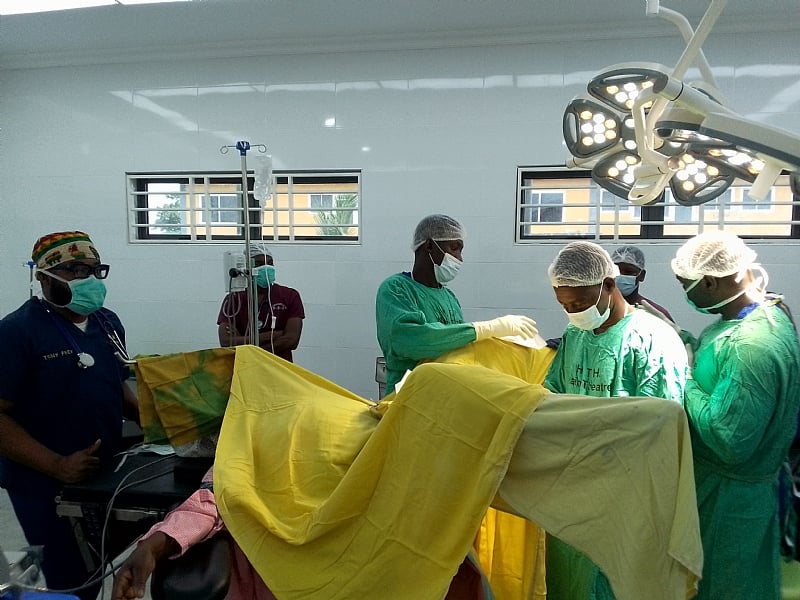Obstetric fistula, a devastating childbirth injury, plagues countless women worldwide, particularly in developing nations. This debilitating condition arises from prolonged or obstructed labor, creating a tear between the birth canal and either the bladder or rectum. The resulting incontinence leads to chronic leakage of urine or feces, plunging affected women into a cycle of physical suffering, social isolation, and profound shame. In observance of the International Day to End Obstetric Fistula, the United Nations Population Fund (UNFPA), along with the World Health Organization (WHO) and other partners, has reaffirmed its commitment to eradicating this preventable tragedy, particularly focusing on providing free surgical repairs to affected women in Ghana. This initiative reflects a broader global effort to eliminate obstetric fistula by 2030.
The physical ramifications of obstetric fistula extend far beyond incontinence. The constant leakage can lead to infections, skin irritations, and kidney problems. Moreover, the psychological and social consequences are equally devastating. Women with fistula are often ostracized by their communities, abandoned by their families, and robbed of their dignity. The inability to control their bodily functions prevents them from participating in everyday activities, including social gatherings, religious ceremonies, and even sharing meals with their loved ones. This enforced isolation exacerbates their suffering and perpetuates the stigma surrounding the condition. The UNFPA’s provision of free surgeries represents a critical step towards restoring these women’s physical health and social integration, offering them a chance to reclaim their lives and reintegrate into their communities.
In Ghana, the fight against obstetric fistula has gained significant momentum. Five hospitals across the country have been designated as centers of excellence for fistula repair surgery, offering free procedures to affected women. These hospitals, strategically located to ensure accessibility across various regions, include Komfo Anokye Teaching Hospital in Kumasi, Ho Teaching Hospital in the Volta Region, Tamale West Hospital in the Northern Region, Mercy Women Catholic Hospital in the Central Region, and the Upper West Regional Hospital. The coordinated effort to provide free surgeries is a testament to the commitment of the Ghanaian government, the Ministry of Health, the Ghana Health Service, and international organizations like UNFPA and WHO. The Partnership to End Fistula in Ghana (PEFIG) spearheads this nationwide initiative, playing a crucial role in coordinating the surgical campaigns and providing support to survivors.
While Ghana has made commendable progress in improving maternal health, with an estimated 87-88% of births now taking place in healthcare facilities under the supervision of skilled professionals, challenges persist. The maternal mortality rate remains high, a stark reminder of the vulnerabilities that pregnant women face. For every woman who dies during childbirth, approximately 20 others experience severe complications, with obstetric fistula representing one of the most debilitating outcomes. The high maternal mortality rate underscores the urgent need for continued investment in maternal healthcare, particularly in strengthening emergency obstetric care and ensuring access to skilled birth attendants in all regions. Addressing the root causes of maternal mortality and morbidity, including obstetric fistula, is crucial for achieving sustainable progress in women’s health.
The success of the campaign to end obstetric fistula hinges not only on providing accessible and affordable surgical treatment but also on dismantling the pervasive stigma that shrouds the condition. The silence and shame surrounding fistula often prevent women from seeking timely medical care, exacerbating their suffering and perpetuating the cycle of isolation. Public awareness campaigns are essential for educating communities about the causes, prevention, and treatment of obstetric fistula. Emphasizing that fistula is a preventable and treatable medical condition, not a curse or a source of shame, is crucial for encouraging women to seek help without fear of judgment or discrimination.
The collective efforts of international organizations, government agencies, healthcare providers, and community leaders are vital for achieving the shared goal of eliminating obstetric fistula. Continued investment in healthcare infrastructure, training of healthcare professionals, and community education programs is essential. Moreover, empowering women, promoting access to quality maternal healthcare, and fostering a supportive social environment are critical for preventing obstetric fistula and ensuring that all women can experience safe and healthy childbirth. Ultimately, ending the suffering caused by obstetric fistula requires a multi-pronged approach that addresses both the medical and social dimensions of this devastating condition.


